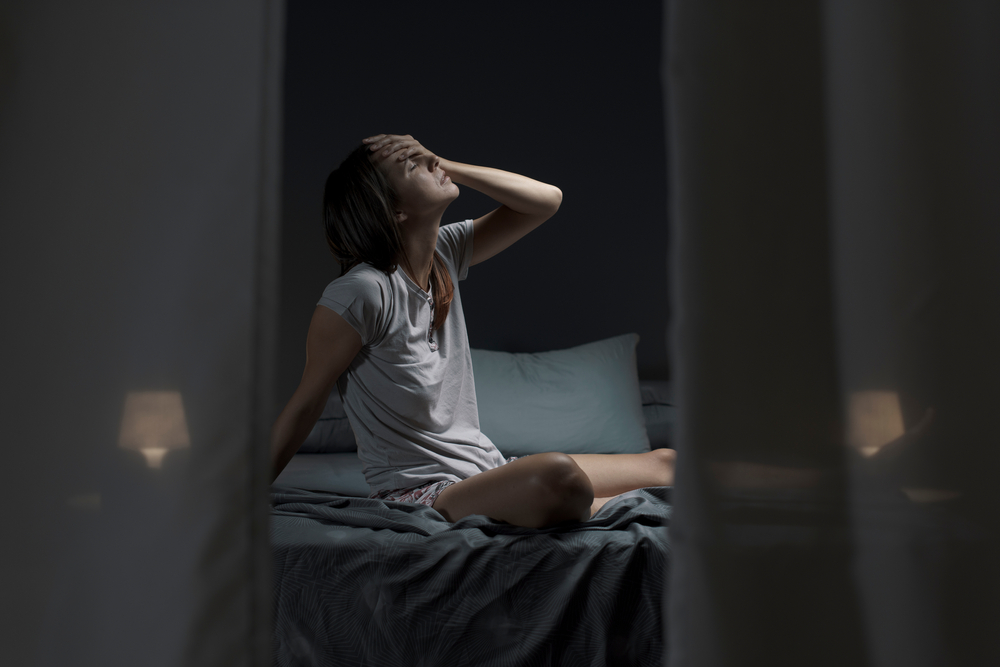How to Identify What is Causing Night Sweats and What You Can Do
by Carolyn Lee Jun 20, 2022

If you’ve woken up in the middle of the night drenched in sweat, you may wonder what’s caused it. A hot shower, wearing too much clothing to bed, or a warm bedroom can cause sweating during the night.
However, people who overly and regularly sweat while sleeping may be experiencing a condition known as night sweats. Night sweats refer to sweating excessively during sleep and may indicate underlying health conditions or psychological processes.
So, what happens to someone with night sweats?
Night sweats are soaking sweats that drench clothing and bedding and disrupt sleep. This condition happens when blood vessels become large, leading to increased blood flow and then contract. This process results in a sudden wave of heat spreading through the body and is followed by sweating, rapid heartbeat, and skin reddening. A cold chill often follows night sweats.
Why should you pay attention to night sweats?
Waking up in clammy clothing or a soaked bed is uncomfortable and can affect the quality of your sleep and make your partner concerned. Night sweats can indicate a health condition that requires treatment, making understanding the cause significant.
What are some conditions and illnesses that can result in night sweats?
Some conditions and illnesses that can cause night sweats include menopause, male hypogonadism, anxiety disorders, stress, some types of cancer, nerve damage, sleep disorders (obstructive sleep apnoea), and hormone disorders. Infections (tuberculosis), neurological conditions (stroke, nerve damage, and abnormal reaction of the nervous system to stimulation), and hyperhidrosis (excess sweat without an identifiable medical reason) may also cause night sweats.
What causes night sweats in women?
Menopause is the leading cause of night sweats in women. Many women aged 40 to 50 experiencing perimenopause or menopause get hot flashes or night sweats. Other conditions that can cause night sweats in women are GERD, an overactive thyroid, diabetes, endocrine tumours, and substance abuse, among other conditions.
Do men also struggle with night sweats?
Both men and women experience night sweats caused by infection, hyperhidrosis, stress, or certain medications (painkillers, antidepressants, diabetes treatments, etc.). Low testosterone levels (male hypogonadism) can cause night sweats in men. Symptoms of male hypogonadism include erectile dysfunction, loss of facial and body hair, increased body fat or lower muscle mass, weakness, and fatigue. A doctor may recommend treating the underlying cause of low hormone levels or suggest testosterone replacement therapy for men with night sweats caused by male hypogonadism.
When should you see a doctor for night sweats?
It is typical for some women to have night sweats during PMS or while having their period. However, people who have frequent night sweats, additional symptoms, or who experience sleep disturbances should aim to determine the cause. Since there are several different causes of night sweats, it is crucial to consult with a doctor. The doctor may ask for specific tests and a detailed medical history to help determine what medical condition is causing the night sweats.
We live in the tropics, and some nights can be warm, creating an environment for sweating. People affected by night sweats caused by non-medical conditions like heavy bedsheets or a hot room can try using cool sheets or installing an air conditioning system or fans.
Our Find Yello listings make finding a doctor, hardware store, and related businesses easy. Please type the name of the company, service, or product you need into our search bar, then check out their website and look at their reviews.
Sources: Cleveland Clinic, Mayo Clinic, Healthline, WebMD, and Sleep Foundation.








